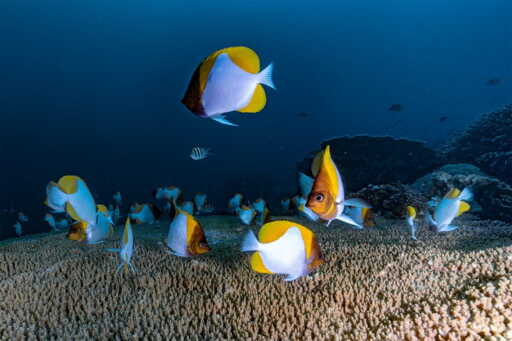The United States is the main market for “ornamental” marine fish, those that end up as pets in aquariums. Now, a new study of U.S.-based online retailers has found that nearly 90% of traded species are sourced exclusively from the wild, including a number of threatened species, and that the trade is poorly tracked. The study, published in October in the journal Conservation Biology, raises concerns about the ecological impact of the trade on marine ecosystems, including around coral reefs, in countries such as Indonesia and the Philippines, where the fish are caught. “We urgently need stronger traceability and regulatory oversight to ensure that aquarium fish are sourced responsibly,” Bing Lin, a postdoctoral research associate at the University of Sydney, Australia, and lead author of the study, said in a press release. Lin undertook the study as a Ph.D. student at Princeton University, U.S. “Consumers have no reliable way of knowing whether the fish they buy were sustainably harvested.” A clownfish, possibly Amphiprion ocellaris, around the island of Bali in Indonesia. Image courtesy of Bing Lin. Bing Lin, who led a study on the marine aquarium trade as a Ph.D. student at Princeton University. Image courtesy of Bing Lin & Helen Yan. The study doesn’t deal with the trade in freshwater aquarium species, which have different supply chains and market dynamics, and are mainly bred in captivity. Nor does it look at the trade in sharks, invertebrates or corals — the focus is marine finfish. More than 1,700 marine finfish…This article was originally published on Mongabay
From Conservation news via this RSS feed


